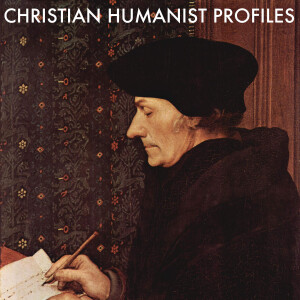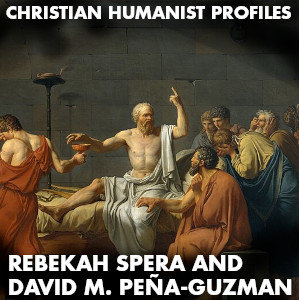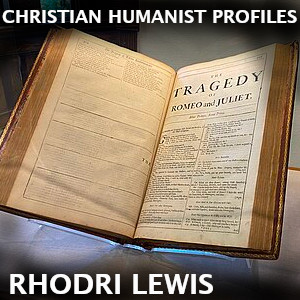

Christian Humanist Profiles
https://feeds.castos.com/3n259Episode List

Christian Humanist Profiles 275: Nick Sorensen
When teachers complain about the ways that schools evaluate our teaching–and we do so with frequency and enthusiasm–one of the common refrains has to do with the measuring instruments and their inability to account for randomness and adjustment to randomness. Many a hallway story involves a moment when a teacher’s plans became irrelevant and the teacher responded. Sometimes in these stories we adapt. Sometimes we invent. But as often as anything else, we improvise, a word that we share with the worlds of jazz music and stage comedy. Nick Sorensen has taken that moment and proposed ways to evaluate the work of teachers in more complex and ultimately more adequate ways, and his recent book The Improvising Teacher: Reconceptualising Pedagogy, Expertise, and Professionalism presents his research and some proposals for moving forward more intelligently. Christian Humanist Profiles is glad to welcome Dr. Sorensen to the show.

Christian Humanist Profiles 274: Bethany Mannon

Christian Humanist Profiles 273: Joy Vaughan

Christian Humanist Profiles 272: Rebekah Spera & David M. Peña-Guzman
When Amaziah, Priest of the Shrine of Bethel, confronts the prophet Amos for conspiring against King Amaziah, Amos replies with a very specific denial: “I am no prophet, nor a prophet’s son.” And it’s hard to run for president of the United States without insisting early and often that “I’m not a politician.” What about philosophers? What happens when you ask a philosopher whether or not she’s a philosopher? We might find that out today as we talk with Rebekah Spera and David M. Peña-Guzman about their recent book Professional Philosophy and Its Myths from Lexington Books. And even if we don’t, I imagine we’ll find ourselves posing questions about the field that we call academic philosophy that are worth posing.

Christian Humanist Profiles 271: Rhodri Lewis
Living among human beings gives an observant person plenty of occasions to think about delusion. Whether one watches the young revolutionary or the aging politician, the conspiracy theorist or the devotee of conventional wisdom, human beings take a peculiar joy in fooling ourselves. And we don’t have to limit ourselves to a single explanation of delusion either: Calvin’s workshop for idols and Nietzsche’s clever forgetting ape both make good sense, depending on whom one watches and in which moment. One could even imagine someone wondering, and forgiving the gendered language of his moment, “What a piece of work is man!” And if that last one rings true, you’re already geared up to hear about Shakespeare’s explorations of human delusion, specifically in his tragedies. Rhodri Lewis’s recent book Shakespeare’s Tragic Art puts delusion in the center of the conversation, and Christian Humanist Profiles, with a very clear mind indeed, is glad to welcome him to the show.
You may also like
Create Your Podcast In Minutes
- Full-featured podcast site
- Unlimited storage and bandwidth
- Comprehensive podcast stats
- Distribute to Apple Podcasts, Spotify, and more
- Make money with your podcast












